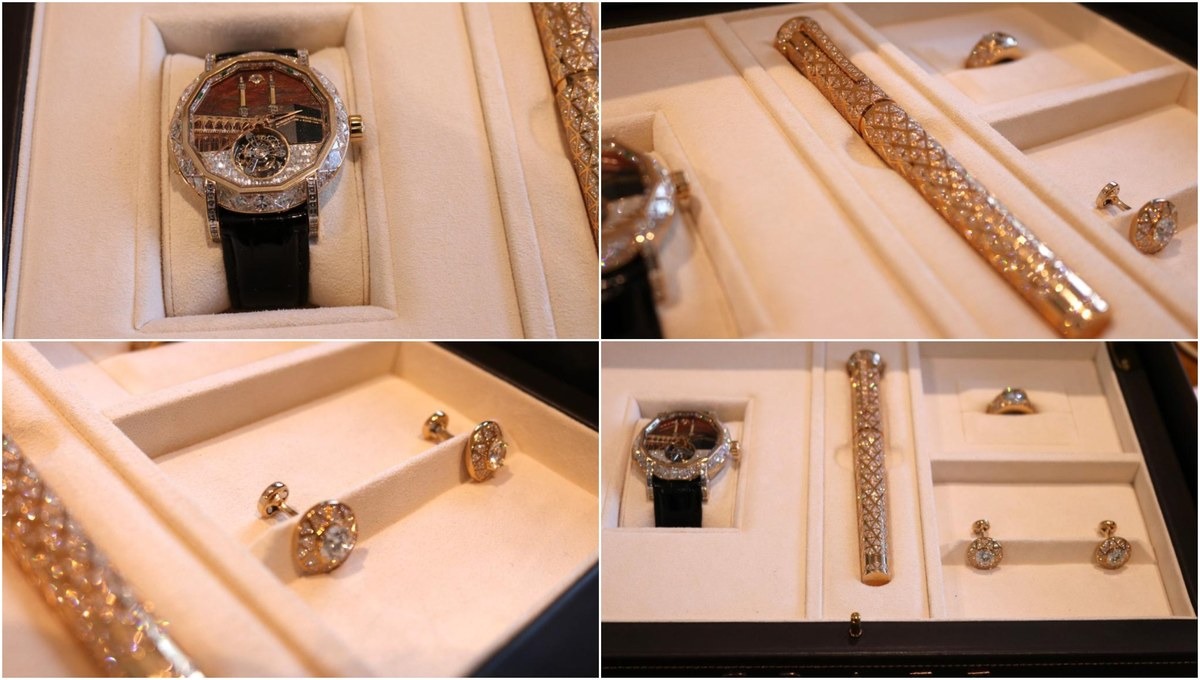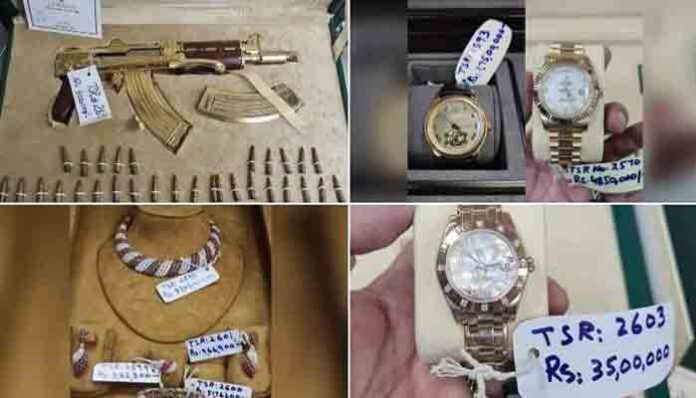Former Prime Minister Imran Khan was convicted by an Islamabad trial court on August 5, 2023, of “corrupt practices” under Section 174 of the Election Act and sentenced to three years in prison along with a fine of Rs100,000.
Imran Khan was arrested from his residence in Lahore and incarcerated in Attock Jail after the court found him guilty of concealing information about gifts he received from foreign dignitaries and selling them for profit.
The case was filed against Khan in August 2022 by members of the Pakistan Democratic Movement (PDM) for his failure to report the details of Toshakhana gifts in declarations of annual assets submitted to the Election Commission of Pakistan (ECP).
It has been proven beyond a shadow of a doubt that Imran Khan has engaged in corrupt practices.
Toshakhana is a government treasury where gifts received by government officials from foreign dignitaries are kept. Khan is accused of keeping three expensive watches gifted to him by foreign leaders and then selling them for hefty profits without declaring the proceeds in his assets and liabilities statement to the ECP.
The ECP launched an inquiry into the allegations against Khan, and in October 2022, it found him guilty of violating the Election Act by making false statements about his assets. The ECP disqualified Khan from holding public office for five years.

The ECP also ordered the reference to be sent to a trial court for the commencement of criminal proceedings against the PTI chairman. In December 2022, the trial court deemed the ECP’s request as maintainable and summoned Khan to appear before the court in January 2023.
Imran Khan challenged the ECP decision in the Islamabad High Court (IHC), arguing that he did not break the law by obtaining and selling Toshakhana gifts and that past leaders had also obtained such gifts by paying a small percentage of their assessed value. However, the trial court continued its proceedings.
Meanwhile, as public interest grew in the history of Toshakhana, the government declassified details of Toshakhana gifts received by public office holders from foreign governments and dignitaries since 2002. It also changed rules regarding reporting and retention of gifts by recipients. According to the new rules, only gifts up to $300 could be retained after due payments as per their assessed market value, while the rest will be displayed at government buildings, donated to charities or auctioned according to the nature of the gift.
Imran Khan’s legal team made every effort to get the case dismissed. It first challenged the admissibility of the case in the trial court, but Additional District and Sessions Judge Humayun Dilawar dismissed the petition and indicted Imran Khan on 10 May 2023. Imran Khan’s lawyers then challenged the maintainability of the case in IHC. The IHC halted criminal proceedings against Imran Khan and remanded the case back to the trial court on 9 July to re-examine the matter in seven days in the light of eight legal questions to decide the maintainability of the case. On 8 July, the trial court decided that the ECP’s petition was maintainable and restarted the criminal proceedings.
Meanwhile, Imran Khan’s lawyers approached the Supreme Court on 7 July seeking a stay on the ongoing trial court’s proceedings against him in the Toshakhana reference. However, on 3 August the Supreme Court rejected the plea and asked the petitioner to wait for the high court’s order, which was deliberating on jurisdiction of the case on Imran Khan’s petitions. Also, Supreme Court declined to interfere in the trial court’s proceedings.
On August 5, the district and sessions court announced its verdict on the case and ordered Khan’s arrest. “He has been found guilty of corrupt practices by hiding the benefits he accrued from national exchequer wilfully and intentionally. He cheated while providing information about gifts he obtained from Toshakhana which later proved to be false and inaccurate. His dishonesty has been established beyond doubt,” the court order said.

The court added that it “finds it more than convincing that the complainant [the ECP] has produced confidence inspiring, well knitted and corroborated evidence, and so the charge against the accused [Imran Khan] has successfully been proven that accused has committed offence of corrupt practices by making and publishing false statements/ declaration in respect of assets acquired by way of gifts from Toshakhana and disposed of during the years 2018-2019, 2019-2020 and making and publishing a false statement and submitting false and incorrect declaration in material particular relating to Form-8 for the year 2020-2021.”
It has been proven beyond a shadow of a doubt that Imran Khan has engaged in corrupt practices. The arrest of Khan is a major blow to his political career. He built a following by churning a false narrative of corruption against his opponents while indulging in practices he accused others of. However, his popularity has declined in recent months, and the Toshakhana case has further damaged his reputation.
He could appeal the court’s decision, but he is unlikely to succeed. The Toshakhana case is a reminder that even the most powerful politicians are not above the law.
The writer is the deputy secretary general PML-N, former SAPM on interior and former home minister Punjab.








